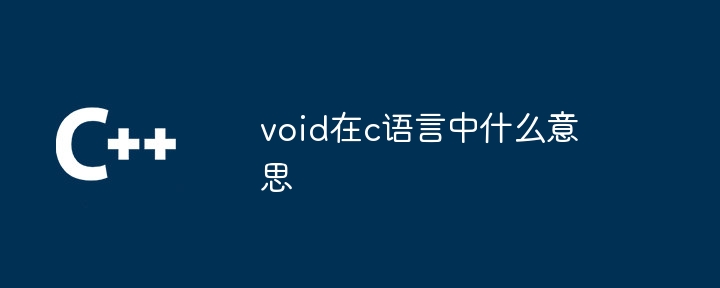
void means null or no value in C language. It is mainly used to specify that the function has no return value or represents the null value of the pointer. The latter can store general pointer values, such as function pointers or callback functions.

The meaning of void in C language
void means empty or no value in C language, it has Two main uses:
1. Specify that the function has no return value
If the function does not return any value after execution, its return type can be specified as void. For example:
void print_hello() {
printf("Hello, world!\n");
}2. Represents the null value of a pointer
is similar to other pointer types such as int, void can point to any type of variable. However, unlike other pointers, void* pointers cannot be dereferenced to obtain the value pointed to by a variable and can only be used to store general pointer values, such as function pointers or callback functions. For example:
void* ptr; ptr = malloc(sizeof(int));
In this example, ptr points to an allocated memory block, but it does not know the type stored in that memory block.
The above is the detailed content of What does void mean in c language?. For more information, please follow other related articles on the PHP Chinese website!




